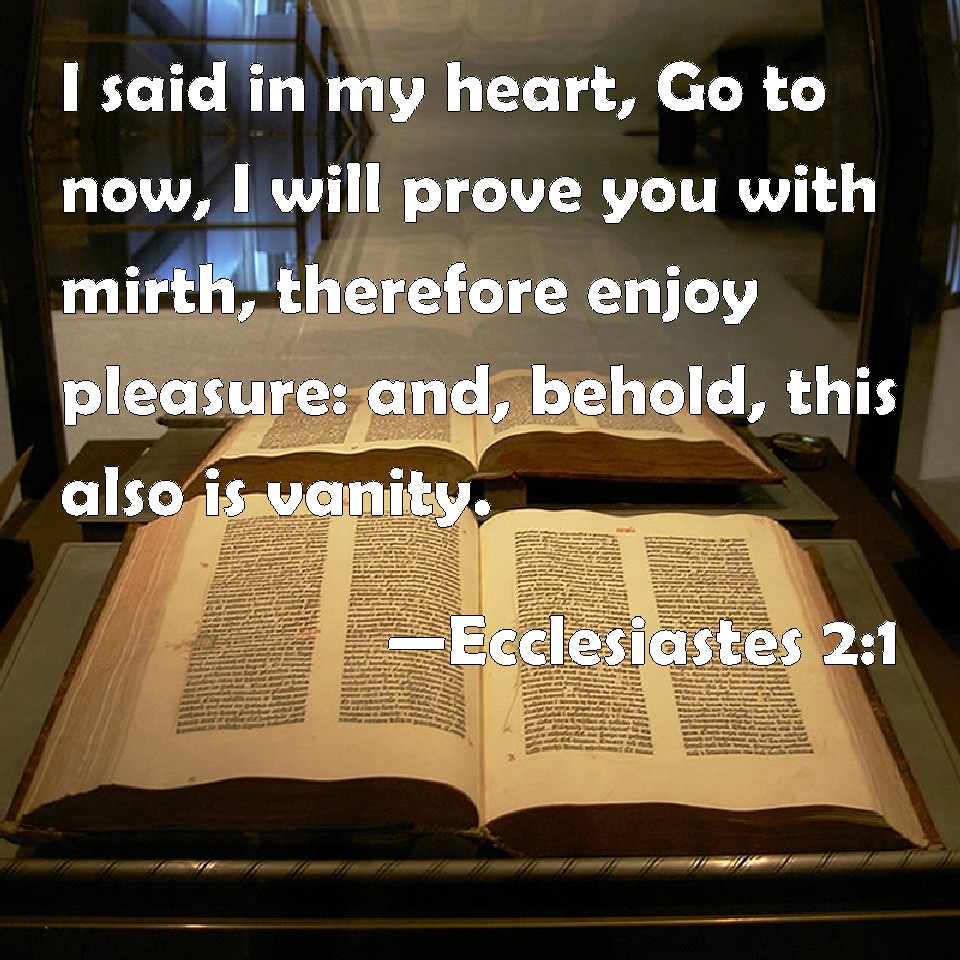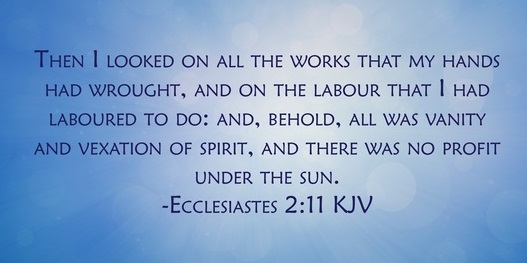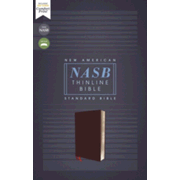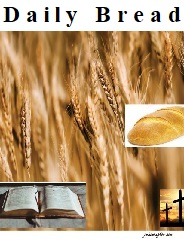The book Ecclesiastes takes its name from the Greek “ekklesiastes,” a translation of the title by which the central figure refers to himself: “Kohelet”, meaning something like “one who convenes or addresses an assembly” or simply a preacher (see Bible Dictionary, “Ecclesiastes”).
The Greek word for an assembly is ekklesia and one who addresses it would be ekklesiastes. In Latin spelling that is ecclesiastes and this is the title of the book. 1
Throughout this book, the writer presents a series of questions in search of the purpose of life.
In the book, “Preacher” is a translation of the Hebrew word koheleth, which is of uncertain meaning. Usually, it is associated with the word kohal, meaning “an open assembly,” so that koheleth might convene such an assembly or addresses it. If the assembly is gathered together for religious instruction, then its addresser would be a preacher.
Asimov explains that following the Book of Proverbs is a second item coming under the heading of “wisdom literature.” This begins:
Ecclkesiastes 1:1 – The words of the Preacher …, or translated as;
Ecclesiastes 1:1 – The words of the Preacher, the son of David, king in Jerusalem.
“Preacher” is a translation of the Hebrew word koheleth, which is of uncertain meaning. Usually, it is associated with the word kahol, meaning “an open assembly,” so that koheleth might convene such an assembly or addresses it. If the assembly is gathered together for religious instruction, then its addresser would be a preacher.
This seems to be a clear indication that it is Solomon talking, and has often been taken as such. However, this is merely the common ascription of almost any piece of wisdom literature to Solomon. Actually, the book seems to be post-Exilic and to have been written, at the best guess, between 300 and 200 B.C. 1
King Solomon, who wrote Ecclesiastes, was on a quest for the meaning and purpose of life. This quest for insight and wisdom fits what other Scriptures tell us about Solomon. When he became king, God gave him the opportunity of a lifetime: Solomon could ask for anything – courage, strength, even money or fame. He chose an understanding heart and wisdom, so he can make good decisions for his people.
Ecclesiastes Chapter 2 – Vs. 1-11: The Search for Meaning in Pleasure.
The previous chapter (Ecclesiastes chapter 1) saw Solomon look for the meaning of life in wisdom – wisdom as it can be understood “apart from eternity.” He found no meaning in skillful, wise living “under the sun.” Now he continued his search for meaning and tested a life of pleasure and amusement.
The Preacher, in chapter 2, is not testing pleasure so much as himself. 2 Solomon tested life’s meaning in mirth and pleasure. He tested the theory many live under today; that the meaning of life is found in more and varied pleasures, entertainments, and excitements
In Ecclesiastes chapter 2, the teacher explores the meaning of life and searches for a lasting value in his life. He considers wisdom, knowledge, pleasure, work, and time, but comes away from his search with a cynical and unsettling view: life is meaningless. As Solomon explores wisdom and madness further (from a foundation of experience and reason), his struggle to understand is thwarted at every turn

Ecclesiastes 2:1, 2 says if work and wisdom are found to be hebe/vaporous/vanity, perhaps pleasure will produce an answer to life’s meaning. Perhaps if the teacher focuses on pleasurable experiences, he can discover the path to fulfillment in life. Since Solomon was incredibly wealthy, there would be no practical limitation to pursuing pleasure.
In Ecclesiastes 2:1, Solomon expresses his doubt about a meaningful conclusion. “But surely, this was also vanity.” The Preacher will shortly explain how he came to this conclusion, but he tells us the result of the testing at the beginning.
In Ecclesiastes 2: 2, Solomon said of laughter – “Madness!”; and of mirth, “What does it accomplish?” Solomon tested the life lived for laughter, pleasure, and fun. Like a modern celebrity, he ran from party to party, entertainment to entertainment. At the end of it all, he judged it to be “Madness” and without accomplishment.
But the increase of wisdom led to vexation and sorrow. In Ecclesiastes 2:1-10, the teacher describes his search for meaning through pleasure, broadly defined. Specifically, he sought meaning in the pleasures of sensuality (2:1-3), labor (2:4-6), and wealth (2:7-10).
As Solomon explores wisdom and madness further (from a foundation of experience and reason), his struggle to understand is thwarted at every turn.
Because there is so much toil under the sun, we can find enjoyment in God’s gifts. But there is a pursuit of pleasure apart from God that does not satisfy, does not provide meaning, and can indeed lead to sin and destruction as good gifts are turned into idolatry, addiction, abuse, and selfishness. The pursuit of pleasure does not bring the fulfillment that human beings seek. The Teacher now shows that mere pleasure cannot give meaning or satisfaction. 3

Summary
Throughout the Book of Ecclesiastes, King Solomon, on a quest for the meaning and purpose of life, presents a series of questions.
Ecclesiastes acknowledges that if we could understand why things happen, difficult circumstances would be easier to deal with somehow.
Perhaps if the teacher focuses on pleasurable experiences, he can discover the path to fulfillment in life. Since Solomon was incredibly wealthy, there would be no practical limitation to pursuing pleasure. Like a modern celebrity, he ran from party to party, entertainment to entertainment. At the end of it all, he judged it to be “Madness” and without accomplishment.
______________Affiliate link – SHOP: _______________
_This ad is for my favorite version of The Bible _
_____but click on it to go to the whole store______


NASB Comfort Print Thinline Bible, Red Letter Edition–bonded leather, burgundy (click here)
By Zondervan
The beloved 1995 Edition of the New American Standard Bible is now easier to read with Zondervan’s exclusive NASB Comfort Print® typeface. This edition of the NASB Thinline Bibles is available in a variety of sophisticated designs in a portable, easy-to-read format.
- The full text of the New American Standard Bible, 1995 Edition
- Exquisite, durable covers
- Less than one inch thick
- Double-column format
- Presentation page
- Two satin ribbon markers
- Words of Christ in red
- Exclusive Zondervan NASB Comfort Print 9 point type
Features:
____________________________________________
In conclusion, consider what the Daily Bread email message sent on 5/03/2023 says,

Ecclesiastes 2: 1, 2 – I said to myself, “Come now, I will test you with pleasure. So enjoy yourself.” And behold, it too was futility. I said of laughter, “It is madness,” and of pleasure, “What does it accomplish?” (NASB)
Solomon focuses on pleasurable experiences, so he can discover the path to fulfillment in life.
But right at the beginning, he expresses his doubt about a meaningful conclusion. “But surely, this was also vanity.” The Preacher will shortly explain how he came to this conclusion, but he tells us the result of the testing at the beginning.
You Can Receive The Daily Bread, for FREE.
To receive the Daily Bread email messages, free on Mon., Wed., and Fri., in your email inbox, just fill in the form below or send an email, and ask to be added, to jmikeh@jmhowington.com
References:
- 1. Isaac Asimov, Asimov’s Guide To The Bible – Two Volumes In One (New York, NY: Avenel Books, 1981), Pg. 512.
- 2. Michael A. Eaton, Ecclesiastes: An Introduction and Commentary (Tyndale Old Testament Commentaries Volume 18), (Westmont, IL: InterVarsity Press,1983), pg. 18.
- 3. NIV,” International Bible Society, The Holy Bible, New International Version, Study Bible (Zonderman Publishing House copyright 1973, 1978, and 1984.), pg. 1009.
